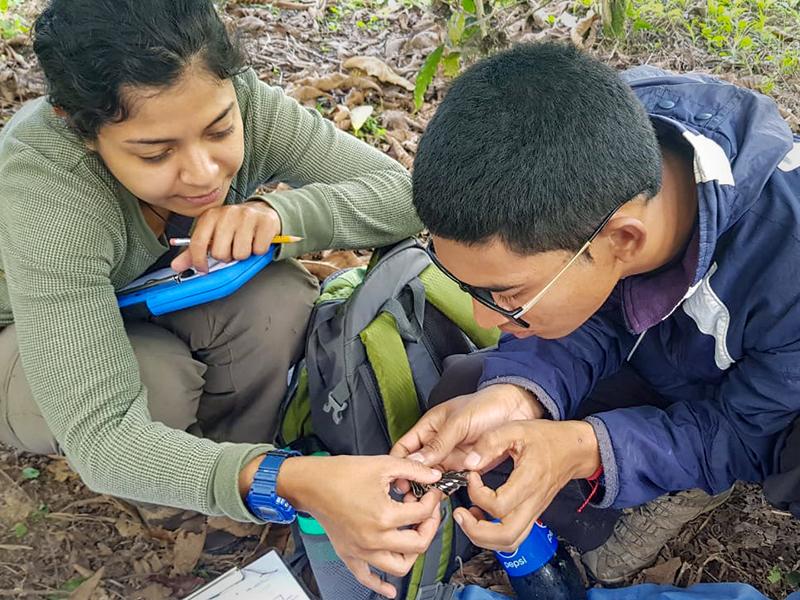Tulane professor wins $2 million grant to make coffee growing more sustainable
For coffee drinkers, there’s nothing like that first sip in the morning. For Tulane University researchers studying the sustainability of coffee in Honduras, the stakes are far higher than a tempting cup of joe.
Honduras is one of the world’s top coffee producing countries, but the growing global demand for coffee is contributing significantly to deforestation, biodiversity loss and climate change.
Through a $2 million grant from the National Science Foundation, Caz Taylor, a professor in the Tulane Department of Ecology and Evolutionary Biology, is embarking on a five-year endeavor to help transform coffee production in Honduras into an industry that is environmentally, economically and socially sustainable.
The grant is from the NSF’s Growing Convergence Research program. Taylor said convergence research is a relatively new term meant to move beyond interdisciplinary and multidisciplinary to a model where researchers from multiple disciplines and other stakeholders work closely together to solve a critical scientific or societal problem.
Based in the Yoro coffee producing region of northwest Honduras, the project brings together conservation biologists, ecologists, agronomists, farmers, indigenous peoples, social scientists, land managers and engineers to co-design and implement a framework for testing approaches to sustainable agricultural production.
Researchers will then apply the design to coffee production, integrating technological innovations such as renewable-energy dryers and clean wet mills that recycle coffee pulp and reduce water pollution. It will incorporate economic development incentives that compensate farmers for preserving forest on their lands through microcredit and training programs, particularly aimed at supporting female landowners and farmers.
“One of the primary reasons for conserving forest is to conserve water,” Taylor said. “The region we are working in has suffered severe water shortages due to run-off caused by conversion of forested areas to coffee. Watershed modeling to understand this better will be a part of our project.”
The team will also be studying engineering solutions to use renewable energy to process coffee, Taylor said.
“Currently coffee is often dried using large industrial dryers fueled by wood - the harvesting of fuelwood is a source of devastation of the forest,” she said. “Our collaborators have designed a dryer that uses biofuel and solar and protects the forest. The dryer also provides some well-paid, skilled employment.”
Taylor’s collaborators include researchers from the University of Massachusetts, the University of North Carolina and Indiana University of Pennsylvania as well as the Universidad Nacional Autonoma de Honduras. The team also includes the Mesoamerican Development Institute, which produces its flagship coffee Café Solar through a combination of coffee growing, forest regeneration and solar-powered processing.
Taylor, who researches the decline of North American migratory birds in Honduras and other Central American countries, said she became interested in the coffee production issue through one of her PhD students, Fabiola Rodríguez, a native of Honduras, who is studying the effects of forest loss in Honduras on migratory birds.
Rodríguez said the project is significant to her not only because it is taking place in her home country but because she has had the opportunity to build collaborations between her Honduran and U.S. colleagues.
“The birds I study are a shared natural resource between North America and Central America, and they are experiencing declines — part of the biodiversity loss crisis our world is facing,” Vasquez said. “So, my research will be one of the ecological attributes that inform how the coffee farms sustain biodiversity. Ultimately this is much needed work for the coffee producing region of Yoro and Honduras.”

